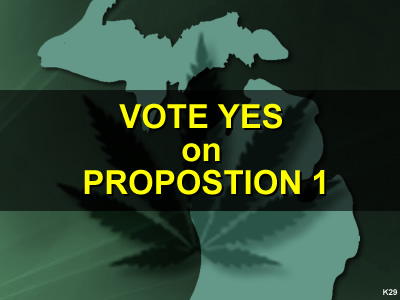
Nov 4, 2018 | Blog, Legalization, News
Mexico Supreme Court says ban on recreational marijuana unconstitutional
MEXICO CITY (Reuters) – Mexico’s Supreme Court on Wednesday ruled that an absolute ban on recreational use of marijuana was unconstitutional, effectively leaving it to lawmakers to regulate consumption of the drug.
Announcing it had found in favor of two legal challenges filed against prohibition of recreational marijuana use, Mexico’s top court crossed the threshold needed to create jurisprudence: five similar rulings on the matter.
That creates a precedent other Mexican courts will have to follow.
“This is a historic day,” Fernando Belaunzaran, an advocate of drug reform and member of the opposition leftist Party of the Democratic Revolution (PRD), said.
The Supreme Court made its first ruling to allow a group of people to grow marijuana for personal use in November 2015.
“You have the right to remain silent. Anything you say can and will be used against you in a court of law. You have the right to an attorney. Use both those rights and Contact Komorn Law Immediately to secure your rights 800-656-3557.
In a statement, the court said the ruling did not create an absolute right to use marijuana and that consumption of certain substances could still be subject to regulation.
“But the effects caused by marijuana do not justify an absolute prohibition on its consumption,” it said.
The court ordered federal health regulator COFEPRIS to authorize people seeking the right to use marijuana to do so personally, “albeit without allowing them to market it, or use other narcotics or psychotropic drugs.”
Congress would now have to act to regulate the use of marijuana in Mexico, Belaunzaran said.
Officials in the incoming government of President-elect Andres Manuel Lopez Obrador have indicated they could take steps to legalize marijuana quickly as part of a broader strategy to fight poverty and crime.
Komorn Law has represented numerous clients through the legal chaos of starting up a business in the Michigan Medical Marihuana Industry as well as consulting and legal representation for Medical Maruhuana Patients and Caregivers.
If you or someone you know has been arrested as a result of Medical Marijuana, DUI, Drugs, Forfeiture, Criminal Enterprise or any other criminal charges please contact our office and ensure you’re defended by an experienced lawyer.
Attorney Michael Komorn is recognized as an expert on the Michigan Medical Marihuana Act. He is the President of the Michigan Medical Marijuana Association (MMMA), a nonprofit patient advocacy group which advocates for the rights of medical marijuana patients and their caregivers.
Contact us for a free no-obligation case evaluation 800-656-3557.
Follow Komorn Law
This page is for informational purposes only. Laws, regulations and the world change routinely, therefore we insist you consult an attorney for the most current legal information.

Nov 1, 2018 | Blog, Legalization, News
Map Of Michigan Licensed Medical Marihuana / Cannabis Businesses
This map shows where medical marijuana businesses with licenses approved by the state board are in Michigan. This map should be updated after each Medical Marihuana Licensing Board meeting.
“You have the right to remain silent. Anything you say can and will be used against you in a court of law. You have the right to an attorney. Use both those rights and Contact Komorn Law Immediately to secure your rights 800-656-3557.
Komorn Law has represented numerous clients through the legal chaos of starting up a business in the Michigan Medical Marihuana Industry as well as consulting and legal representation for Medical Maruhuana Patients and Caregivers.
If you or someone you know has been arrested as a result of Medical Marijuana, DUI, Drugs, Forfeiture, Criminal Enterprise or any other criminal charges please contact our office and ensure you’re defended by an experienced lawyer.
Attorney Michael Komorn is recognized as an expert on the Michigan Medical Marihuana Act. He is the President of the Michigan Medical Marijuana Association (MMMA), a nonprofit patient advocacy group which advocates for the rights of medical marijuana patients and their caregivers.
Contact us for a free no-obligation case evaluation 800-656-3557.
Follow Komorn Law
This page is for informational purposes only. Laws, regulations and the world change routinely, therefore we insist you consult an attorney for the most current legal information.

Nov 1, 2018 | Blog, Legalization, News
Mexico’s Supreme Court legalizes cannabis for recreational use
MEXICO CITY, Oct. 31, 2018 (UPI) — Drug policy reformers claimed victory in Mexico City Wednesday after the country’s Supreme Court handed down two rulings legalizing cannabis for all forms of non-commercial adult use.
“The rulings pave the way for adults to use marijuana in any way they see fit. We aren’t just talking about recreational use,” Froylán Enciso, a drug policy researcher at Mexico’s social sciences institute, the CIDE, told UPI.
In the first case, a plaintiff wanting to grow his own marijuana applied to the court for an “amparo,” a form of constitutional protection from prosecution, so that he can plant, cultivate, harvest, prepare, possess and transport marijuana.
In the second case, another plaintiff also applied for an amparo to consume marijuana for recreational purposes.
“The court has found that marijuana can be used for rituals, for recreational use, for medical use, at work, for scientific investigations. For any adult use and that it cannot be penalized,” Enciso said.
“You have the right to remain silent. Anything you say can and will be used against you in a court of law. You have the right to an attorney. Use both those rights and Contact Komorn Law Immediately to secure your rights 800-656-3557.
The drug policy researcher said most people in prison in Mexico for drug crimes are incarcerated for possessing marijuana.
“The Mexican government has not put violent criminals in prison but people who smoke small quantities on street corners or outside,” Enciso said, “so these decisions will benefit many small consumers.”
The rulings come after years of strategic litigation by Mexican drug policy activists starting in 2015. Unlike the United States, Mexican federal law requires five consecutive rulings on the same issue and in the same direction to create jurisprudence eventually declaring a law unconstitutional.
The next step toward legalization of cannabis for non-commercial purposes is that the Supreme Court must inform Mexico’s Congress within 90 days that prohibiting adult use is unconstitutional. Congress then has to reform the laws the court found unconstitutional. If Congress does not act, every adult prosecuted for using marijuana can also apply for protection from the judicial system.
“The rulings create jurisprudence but they do not in themselves amount to changes in legislation,” Enciso said. “Even so they are very important not just for Mexico but for the United States.”
“When Congress declares marijuana prohibition unconstitutional in Mexico,” the drug policy researcher said, “the federal government of the United States will be the only prohibitionist jurisdiction left in North America. Canada now has legal marijuana. More than 30 states in the U.S. have some form of marijuana legalization. And now with Mexico legalizing consumption and production, the only drug warriors remaining in North America are President Donald Trump and Attorney General Jeff Sessions.”
In both cases decided Wednesday the Supreme Court’s justices ruled 4-1 in favor of granting adults the right to use marijuana for non-commercial purposes. The one justice who ruled against the plaintiffs argued adult use must not infringe upon the rights of others.
HAPPY HALLOWEEN MEXICO
Komorn Law has represented numerous clients through the legal chaos of starting up a business in the Michigan Medical Marihuana Industry as well as consulting and legal representation for Medical Maruhuana Patients and Caregivers.
If you or someone you know has been arrested as a result of Medical Marijuana, DUI, Drugs, Forfeiture, Criminal Enterprise or any other criminal charges please contact our office and ensure you’re defended by an experienced lawyer.
Attorney Michael Komorn is recognized as an expert on the Michigan Medical Marihuana Act. He is the President of the Michigan Medical Marijuana Association (MMMA), a nonprofit patient advocacy group which advocates for the rights of medical marijuana patients and their caregivers.
Contact us for a free no-obligation case evaluation 800-656-3557.
Follow Komorn Law
This page is for informational purposes only. Laws, regulations and the world change routinely, therefore we insist you consult an attorney for the most current legal information.

Nov 1, 2018 | Blog, Legalization, News
Pros and Cons: Panel weighs in on marijuana ballot issue in Monroe
This is an article from the Monroe Evening News
Monroe County Community College hosted the panel discussion Tuesday as part of its Culture and Community Affairs Speaker Series.
You can catch up on election news and previews at The Monroe News’ Election Section. We also have a backgrounder file on this topic at In Review: Michigan’s marijuana debate
A panel discussion aimed at sharing the pros and cons of Michigan’s recreational marijuana ballot issue was hosted by Monroe County Community College.
Officials both for and against Proposal 1 discussed the legislation which would legalize the possession, use and cultivation of marijuana products by those who are at least 21 years old, according to ballot language.
The hour-long panel took place about 2:30 p.m. Tuesday at the Audrey M. Warrick Student Services and Administration Building. MCCC President Kojo A. Quartey served as the discussion’s moderator, with guests including students, faculty and members of the community.
“We are an educational community, and when there are issues of this nature, there needs to be somewhere to present unbiased views,” Quartey said. “I know this is a contentious issue… The job is to convince those who really aren’t sure where they stand.”
The panel was part of the college-sponsored Culture and Current Affairs Speakers Series which features a variety of cultural, political or social topics of interest.
“You have the right to remain silent. Anything you say can and will be used against you in a court of law. You have the right to an attorney. Use both those rights and Contact Komorn Law Immediately to secure your rights 800-656-3557.
Panelists consisted of three representatives speaking in support of Proposal 1 and four in opposition.
Those in favor included Michael Komorn, president of the Michigan Medical Marijuana Association (MMMA) and a Farmington Hills attorney; Steve Miller, a representative from the Law Enforcement Action Partnership ( LEAP) and retired Canton Township police sergeant; and Jesse Riggs, also a representative of the MMMA and a former United Auto Workers (UAW) member.
Those opposed included Michael G. Roehrig, Monroe County chief assistant prosecutor, with Lauren Beaudry, the county’s assistant prosecutor assigned to drug possession cases; Quri Wygonik, an MCCC institutional research coordinator; and Randy Richardville, a former Republican state Senate majority leader and spokesperson for Healthy and Productive Michigan.
The opposition had one more member than those in favor because Roehrig was assisted by Beaudry, but both represented the prosecutor’s office.
Several heated discussion points were introduced by audience members or sparked among debate between the panelists.
Following are the opinions presented among three key topics — children, law enforcement and impairment — throughout the panel.
Increased marijuana use among both youth and young adults was an issue raised by those opposed to legalizing recreational marijuana.
“I am opposed to this both personally and professionally,” said opponent Roehrig who is a father to four daughters. “This legislation targets children.”
The opposition predicts lowered IQ rates, more school suspensions and higher college dropout rates, if Proposal 1 is successful. They also said potent edibles shaped like gummy bears, cookies or other sweet treats wrongly appeal to a young market.
Backers disagreed citing the issue’s ballot language indicates one must be at least 21 years old to use recreational marijuana.
“No one in support of this ballot issue is suggesting that children should use (marijuana),” supporter Komorn said. “It’s designed for adults only.”
LAW ENFORCEMENT
A police officer for more than 20 years, supporter Miller said law enforcement should focus its time and resources on more serious drug offenses than marijuana use, possession or delivery.
“It’s time to stop wasting law enforcement resources… on marijuana,” Miller said. “I have never witnessed any harms or dangers as it relates to marijuana.”
Those opposed disagreed, arguing that drug related offenses only will increase with the legalization of recreational marijuana and create a need for increased law enforcement.
According to the ballot language, those 21 or older would be allowed to recreationally possess or sell up to 2.5 ounces of marijuana. Up to 10 ounces would be allowed to be kept in a private residence.
″(There will be) people walking around with big bags of dope with intent to sell,” opponent Richardville said.
TESTING LEVEL OF IMPAIRMENT
One question proposed by an audience member asked officials how recreational marijuana impairment would be tested and regulated, should the ballot issue pass.
“We don’t have rapid detection methods, and we don’t have a point that’s equal to blood alcohol level,” opponent Wygonik said, citing previous research she conducted on opioids and marijuana. Her opinion was given as a researcher, not as a representative of MCCC.
Opponents predicted increased numbers of traffic accidents and workplace injuries due to recreational marijuana, while backers said measures already are in place to identify impaired drivers and employees.
A marijuana field sobriety test would not be necessary, according to supporters, because law enforcement would be able to visually identify impaired drivers and blood tests would reveal those driving or working under the influence.
“There are union contracts in place and trainings available to identify someone who is under the influence,” supporter Riggs said. “This is something already in place that I don’t think we need to worry about with this issue.”
Video excerpt from the discussion:
Komorn Law has represented numerous clients through the legal chaos of starting up a business in the Michigan Medical Marihuana Industry as well as consulting and legal representation for Medical Maruhuana Patients and Caregivers.
If you or someone you know has been arrested as a result of Medical Marijuana, DUI, Drugs, Forfeiture, Criminal Enterprise or any other criminal charges please contact our office and ensure you’re defended by an experienced lawyer.
Attorney Michael Komorn is recognized as an expert on the Michigan Medical Marihuana Act. He is the President of the Michigan Medical Marijuana Association (MMMA), a nonprofit patient advocacy group which advocates for the rights of medical marijuana patients and their caregivers.
Contact us for a free no-obligation case evaluation 800-656-3557.
Follow Komorn Law
This page is for informational purposes only. Laws, regulations and the world change routinely, therefore we insist you consult an attorney for the most current legal information.





